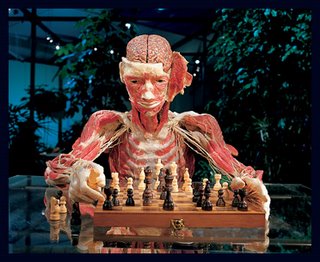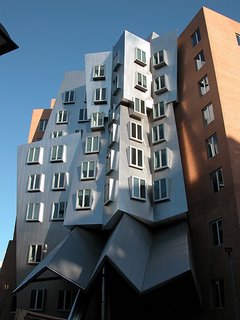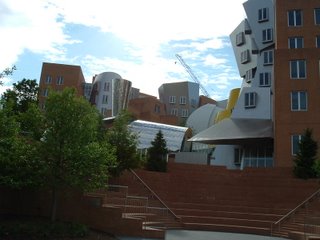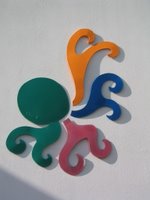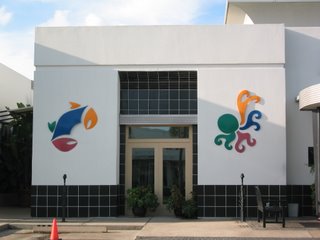Inside My World...HFireman
A very eclectic and far-ranging blog. A glimpse into my mindset... things I find interesting, provocative and worth thinking about... things visual, things fictional, observations and commentary,... and questions that we need to be asking ourselves. Welcome to my world.
Friday, September 22, 2006
Question of the Day: September 21, 2006
In your mind, what is the downside for humanity in the extent to which the computer has become such an integral part of human existence?
Ten Important Things You Need to Know About Your Computer That No One Ever Told You.
Like a lot of things in life, owning a computer is one of those things which is something of a love-hate matter. We love the machine when it is zooming along and we are ready to throw it out the window, when it starts giving us trouble. I suspect we take it rather personally when our computer stops working, usually at the worst possible moment. But then, there is a rule about that, isn’t there? Be that as it may, the computer has become an integral part of our lives and none of us could ever live without one anymore.
Having worked in the IT industry for awhile, I have observed that many people who have a computer could avoid a lot of problems they encounter if they just understood a few common-sense bits of information about using and maintaining their machines. Very little of what I am about to tell you even begins to approach rocket science. Frankly, I am a bit surprised that none of the gurus out there in the computer world have bothered to share these valuable guidelines with the world at large. By following a few basic guidelines, you can make your life with your computer a lot more serene and productive.
These guidelines will apply specifically to computers which have some version of Microsoft Windows installed in them as their operating system.
So here are ten things you need to know about your computer:
Item One: The computer is just a machine.
Item Two: The wear and tear on a computer takes two forms.
Secondly, the software part of the computer, the programs [like a game or a word processor] one installs into the computer and the operating system (OS) can get damaged or corrupted, so that some particular part or all of a specific program can cease to work or to malfunction.
Item Three: Computers require regular scheduled maintenance,
just like your car does. For example, modems should be replaced about every three years. You should have your computer checked out by a trained computer technician every 12 to 18 months, to make sure that everything is running as it should and to do a “tune up” to get it back to optimal performance.
Item Four: Clearing the cache regularly.
In the Control Panel, in the Internet Options section, you should clean out the Temporary Internet Files about once a week. When you go to the internet to browse websites, you bring in files and cookies that do not go away until you delete them. You can set your computer to perform this task at regular times during the week. If one of these files or cookies get corrupted, it can keep you from connecting to the internet. Additionally, as amount of Temporary Internet Files accumulates, your computer may begin to function as a slower rate, especially in older computers with smaller hard drives.
Item Five: Defragging the computer.
Item Six: Protecting your computer against power surges.
If your area is experiencing severe electrical storms, it is generally a good idea to unplug the power cord from the computer where it goes into a surge protector and to unplug the phone cord from the wall, in order to protect the computer from an unexpected power surge through either cord, which can damage hardware and corrupt settings and programs which are installed.
Item Seven: Know your limitations when it comes to fixing computer problems.
If some part of your computer is malfunctioning and if you are not exactly sure what the problem is or what to do next, it is better to stop right there and do nothing at all. If you do not know what you are doing, it is not all that difficult to damage your system or to cause the system to crash. In this case, the wisest thing to do is to call in a qualified technician to fix the problem.
Item Eight: A complete shutdown of the system can fix some problems
If you leave your computer on most of the time or you put it into sleep mode, sometimes it may develop a small problem and nothing you do seems to fix the problem. Try doing a complete shutdown of the system and let it sit for about 10 seconds and then reboot. Check the system to see if shutting it down resolves the problem. A lot of the time it does.
Item Nine: A firewall can keep you from browsing, if you use a dialup connection.
If you connect with a dialup connection, a very strong firewall, like ZoneAlarm, or two firewalls and/or the proxy server in combination can prevent you from browsing. If you are having a browsing problem and the connection/modem seem to be okay, try turning off the firewalls and the proxy server [in Internet Options in the Control Panel]. Then, after you reconnect to the internet, go back into Internet Explorer and see if that resolves the problem.
Item Ten: If you cannot open attachments in Outlook Express 6, uncheck “ Do not allow attachments to be saved or opened…”
If you are having problems in Outlook Express 6 because you cannot open any attachment to an email, do the following:
1. Click on Tools near the top of the main page of OE.
2. Then go to the bottom of the list and check on Options.
3. At the top of the Options page, click on the Security tab. The first section on that page is titled Virus Protection.
4. Go to the fourth line in Virus Protection, “Do not allow attachments to be…..” and uncheck that line.
5. In the lower right hand corner of the box, click on the Apply button, then click on the OK button.
6. That resolves the problem.
I hope these ten hints will help to demystify some of the problems and issues you face with your computer. In a few days, I will return with a few more helpful hints for you. And just as I told you, nothing very complicated here. You all can handle any of these solutions with ease. Happy Computing.
Howard Fireman
Wednesday, September 20, 2006
Monday, September 18, 2006
A Dubious Honor: The Human Being Rises to the Top of the List

Here is a very interesting project. Let's compile a list of the most destructive parasites that have ever existed on this planet. We have to make sure that we include all of them, every single one.
On this list we would have to include the Neandertal prehumans, homo sapiens [thats us] and all of our other evolutionary ancestors all the way back into the past several million years or so.
Actually, I very much suspect that human beings... homo sapiens... probably sit at the top of the list. We are the A number 1 parasite in the entire natural history of this planet.
With all our capacity for higher reasoning, we human beings are still very capable of treating our fellow human beings quite brutally or of displaying an utter disregard for the often unnecessary pain and suffering of other human beings. Our species has never known a single moment when we were not waging war against each other, somewhere in the world. Those of us who have more than we need to survive in this world allow other human beings to simply starve to death or to die unnecessarily from treatable diseases, because too often we take the attitude that their problems are really is not our business at all. We have no sense that there is delicate balance in the natural world and we have no understanding of the fact that we are but one species among many on this planet. We see ourselves as the "masters" of all we see and want.
Given that to be the case, why would it be terribly surprising if we killed off a species here or there, without giving much thought to the consequences of doing that? Would it be any more of a surprise if we have caused tremendous environmental damage to so many parts of the world. We want what we want, without any consideration of the damage that results when we just take what we want.
In the most recent periods of this planet's natural history, we have witnessed some of the most catastrophic destruction and loss of animal and plant species of all times . These waves of destruction took place as pre-human species and then the more evolved species like the Neanderthals and the homo sapiens spread across the world. And as a species, we haven't stopped doing that since then. What mankind did to Easter Island ecologically and then to themselves there is surely a cautionary tale to which those of us in the 21st century should surely pay heed.
The species, homo sapiens, has a larger brain, a remarkable hand with which to build weapons and tools, and can manipulate the environment in ways that were never imagined before its presence in the world. Systematically, the fragile interdependent eco-system of this planet is being abused and systematically destroyed by what ee cummings called "manUnkind."
Let me repeat: We want what we want, no matter the price which this small planet will have to pay. All too soon, we humans may be paying a fearful price as well. As a species, are just too willful and shortsighted to realize that.
So if you are wondering why we humans... we homo sapiens... have earned the truly dubious honor of being the worst, most destructive parasite on this planet, well, now you know. To all of us, I say, congratulations.
Yeah. Right!

